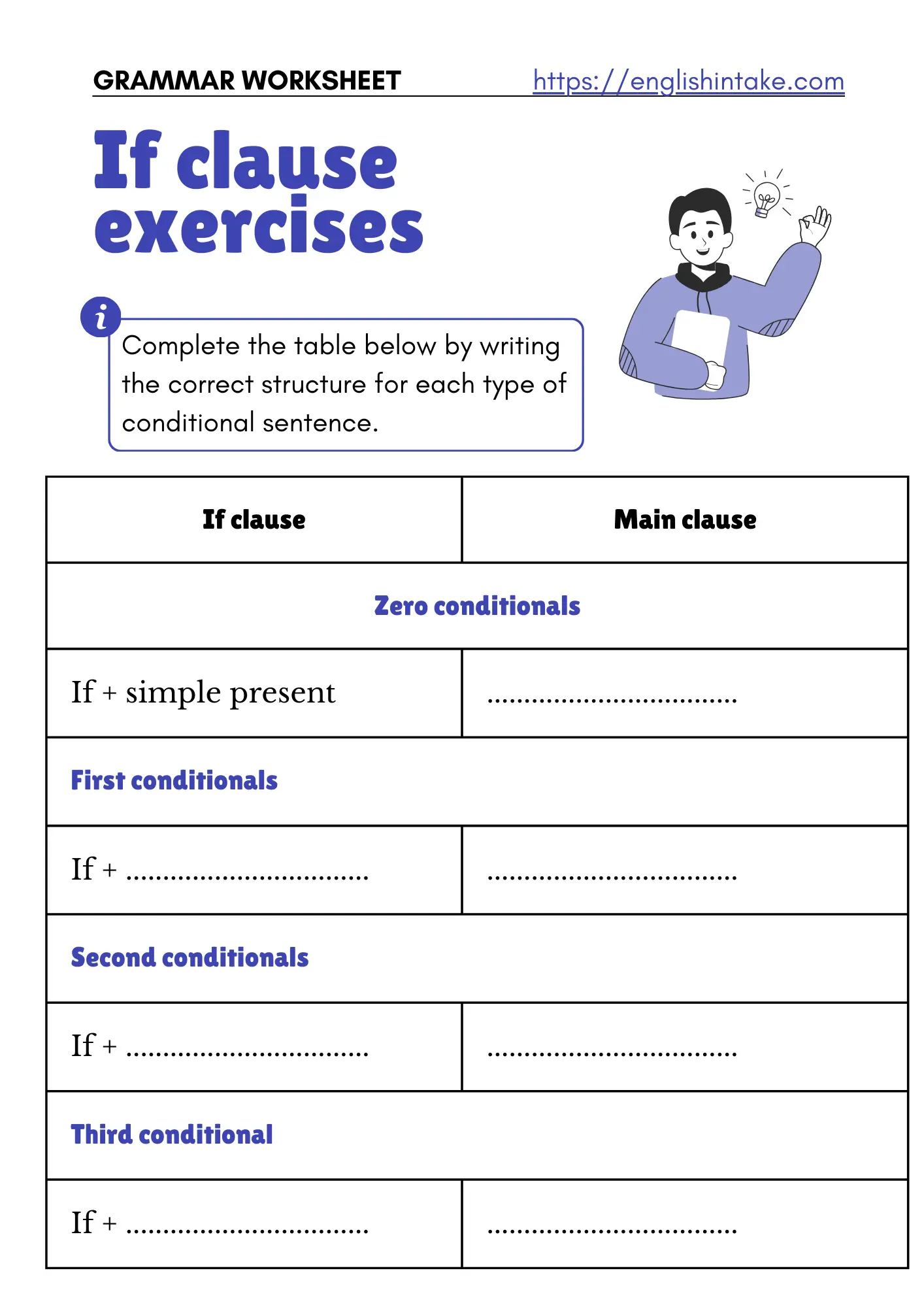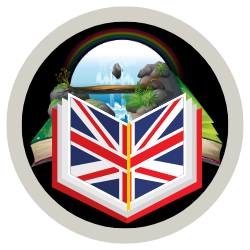Do the following if clause exercises to practise all conditional sentence types, including the zero, first, second, and third conditionals. Each exercise has clear explanations and answers.
If clause exercises - worksheet

| Type | If clause | Main clause |
|---|---|---|
| Zero conditionals | If + present simple | present simple |
| First conditionals | If + present simple | will + base verb |
| Second conditionals | If + past simple | would + base verb |
| Third conditionals | If + past perfect | would have + past participle |
Exercise 1: If clause type 0
Complete each sentence to form a type 0 if-clause (zero conditional), used for general truths, habits, or facts.
1. If you (press) this button, the machine (start).
If you press this button, the machine starts.
2. If you (heat) ice, it (melt).
If you heat ice, it melts.
3. If plants do not get enough sunlight, they (die).
If plants do not get enough sunlight, they die.
4. If we do not eat, we (starve).
If we do not eat, we starve.
5. If you (bend) glass, it (break).
If you bend glass, it breaks.
Both clauses must be in the present simple in zero conditional sentences.
Exercise 2: First conditionals
Complete each sentence to form a type 1 if-clause (first conditional), expressing a possible future result. Do not use a short form.
1. If you (study) well, you (pass) the test.
If you study well, you will pass the test.
2. If it (rain), we (stay) home.
If it rains, we will stay home.
3. If they (arrive) late, we (start) without them.
If they arrive late, we will start without them.
4. If you (not hurry), you (miss) the train.
If you do not hurry, you will miss the train.
5. If I (see) him, I (tell) him the news.
If I see him, I will tell him the news.
If + simple present (if clause), simple future (main clause).
Exercise 3: Second conditionals
Complete each sentence with the correct tense to form a type 2 if-clause (second conditional), describing imaginary or unlikely situations.
1. If I (have) money, I (travel) often.
If I had money, I would travel often.
2. If I (be) you, I (buy) a new car.
If I were you, I would buy a new car. We use 'were' in unreal or imaginary situations.
3. If we (live) in Paris, we (speak) French every day.
If we lived in Paris, we would speak French every day.
4. If he (be) my boyfriend, I (be) happy.
If he were my boyfriend, I would be happy. We use 'were' to describe imaginary situations.
5. If my mom (know) how to play the guitar, she (teach) me.
If my mom knew how to play the guitar, she would teach me.
Second conditionals use If + past simple >> + would + infinitive.
Exercise 4: third conditionals
Complete each sentence using the third conditional type to talk about past situations that did not happen.
1. If she (know) the answer, she (tell) me.
If she had known the answer, she would have told me.
2. If we (leave) earlier, we (catch) the bus.
If we had left earlier, we would have caught the bus.
3. If I (not/cheat) on her, our relationship (last) much longer.
If I had not cheated on her, our relationship would have lasted much longer.
4. If the rescue team (arrive) on time, my brother (be) saved.
If the rescue team had arrived on time, my brother would have been saved.
5. If the driver (press) the brake, the accident (not/happen).
If the driver had pressed the brake, the accident would not have happened.
Use 'had' + past participle in the if-clause and 'would have' + past participle in the result clause.

